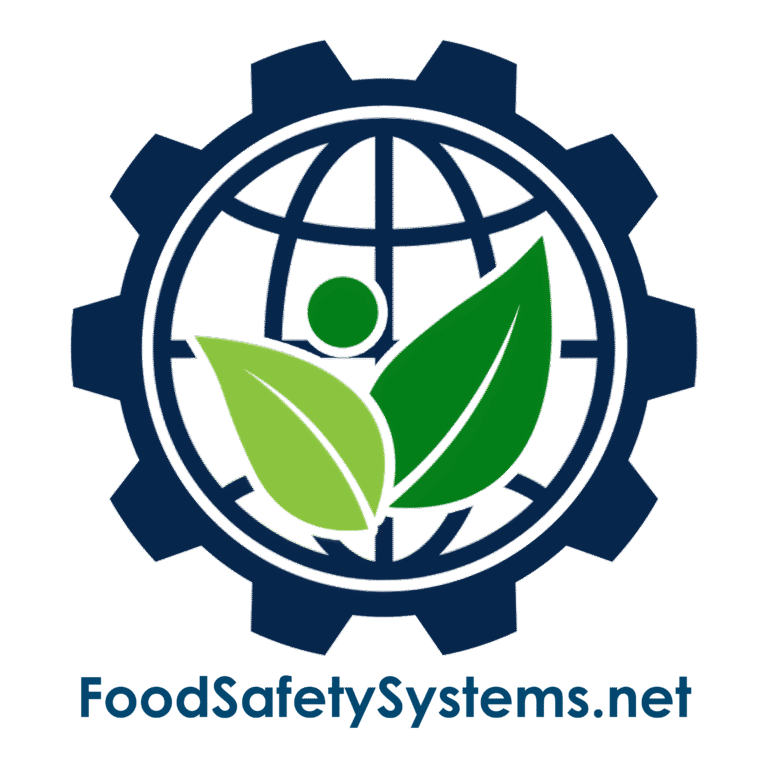Documentation & Record-Keeping

Aligned with HACCP Principles – Codex Alimentarius Step 12
Requirement Overview
Effective HACCP systems depend on accurate documentation and complete, timely records that demonstrate ongoing food safety control, verification, and compliance. Regulatory and certification bodies (e.g., FDA, USDA, BRCGS, SQF) require written evidence of hazard analysis, control measures, monitoring, corrective actions, verification activities, and training.
Documentation provides the “what should be done” while records show “what was done.”
Note: Records must be retained for the duration required by law, customer contracts, or certification schemes.
Aligned with BRCGS for Storage & Distribution Issue 4 – Clause 4.3.1 & 4.3.3
Requirement Overview
BRCGS for Storage & Distribution requires that products moved via cross-docking are traceable and controlled at all times, even when they are not held in storage for extended periods.
Clause 4.3.1: “The company shall ensure that traceability is maintained at all stages, including during cross-docking operations.”
Clause 4.3.3: “Procedures shall be in place to ensure that all products handled, including those not stored on-site, remain under control and are not subject to contamination or substitution.”
Cross-docking operations must not compromise product traceability, safety, or integrity. Even with minimal handling and temporary presence, each product must be accurately identified, documented, and protected.

Key Compliance Objectives
-
✓ Maintain accurate and up-to-date HACCP documentation
✓ Record all food safety activities (monitoring, verification, corrections)
✓ Ensure traceability and audit readiness
✓ Support continuous improvement and legal compliance
Step-by-Step Compliance Implementation
1. Establish a Documentation System
-
Types of Documents to Maintain:
-
• HACCP Plan (hazard analysis, flow diagrams, CCPs, critical limits)
• SOPs and GMPs
• Corrective action procedures
• Training materials and verification protocols
Evidence to Maintain:
-
• Master list of controlled documents
• Version-controlled HACCP plan
• Document approval and revision logs
- • HACCP Plan (hazard analysis, flow diagrams, CCPs, critical limits) • SOPs and GMPs • Corrective action procedures • Training materials and verification protocols
- • Master list of controlled documents • Version-controlled HACCP plan • Document approval and revision logs
2. Implement Record-Keeping Procedures
-
Types of Records to Capture:
-
• CCP monitoring logs (e.g., temperature checks, pH readings)
• Deviation and corrective action reports
• Sanitation and maintenance logs
• Calibration and equipment validation records
• Internal audit results and management review minutes
Evidence to Maintain:
-
• Completed monitoring forms
• Signed corrective action reports
• Verification logs with review signatures
- • CCP monitoring logs (e.g., temperature checks, pH readings) • Deviation and corrective action reports • Sanitation and maintenance logs • Calibration and equipment validation records • Internal audit results and management review minutes
- • Completed monitoring forms • Signed corrective action reports • Verification logs with review signatures
3. Control and Retain Records
-
Best Practices Include:
-
• Use of standardized forms with clear instructions
• Signatures or initials of responsible personnel
• Legibility and accuracy standards
• Secure physical or digital storage with access control
Evidence to Maintain:
-
• Document control SOP
• Digital archive or filing system documentation
• Backup and retention protocols
- • Use of standardized forms with clear instructions • Signatures or initials of responsible personnel • Legibility and accuracy standards • Secure physical or digital storage with access control
- • Document control SOP • Digital archive or filing system documentation • Backup and retention protocols
4. Review and Verify Records
-
Verification Activities May Include:
-
• Daily or weekly record checks by supervisors
• Scheduled internal audits
• Spot-checks for data completeness and accuracy
• Trending analysis to identify recurring issues
Evidence to Maintain:
-
• Verification sign-offs on forms
• Internal audit checklists and reports
• CAPA tracking logs based on record review findings
- • Daily or weekly record checks by supervisors • Scheduled internal audits • Spot-checks for data completeness and accuracy • Trending analysis to identify recurring issues
- • Verification sign-offs on forms • Internal audit checklists and reports • CAPA tracking logs based on record review findings
Common Audit Findings & Recommended Fixes
| Audit Finding | Recommended Action |
|---|---|
| Missing or incomplete records | Train staff and implement daily verification checks |
| Lack of document control | Create a master list and version history log |
| Inconsistent record-keeping formats | Standardize forms and ensure clear usage instructions |
| No evidence of review or sign-off | Add verification and approval steps to record-keeping process |
Auditor Verification Checklist
During audits, expect review of:
-
• HACCP plan with revision history
• Controlled versions of SOPs and logs
• Complete and legible monitoring records
• Records of corrective actions and verifications
• Record retention and access control systems
Implementation Roadmap
Build Your System
-
✓ Establish document types, formats, and retention schedules
✓ Assign roles for documentation control and record review
Train and Implement
-
✓ Instruct staff on how to complete and store records
✓ Use signage or visual aids for field-level compliance
Monitor and Verify
-
✓ Schedule periodic internal audits and supervisor reviews
✓ Perform trending to spot data inconsistencies
Improve Continuously
-
✓ Revise forms and SOPs based on findings
✓ Archive old versions and maintain accessible logs
Why This Matters?
-
✓ Proves compliance with regulatory and certification standards
✓ Enables traceability and root cause analysis
✓ Supports corrective and preventive action effectiveness
✓ Reduces liability and strengthens food safety accountability
Support Tools Available
Food Safety Systems provides:
-
✓ Document control templates and master list tools
✓ Record-keeping SOPs and logbook formats
✓ Verification and audit readiness checklists
✓ Digital recordkeeping solutions and training guides
Privacy Policy | Terms of Service
Powered by Consultare Inc. Group, A Compliance Company







